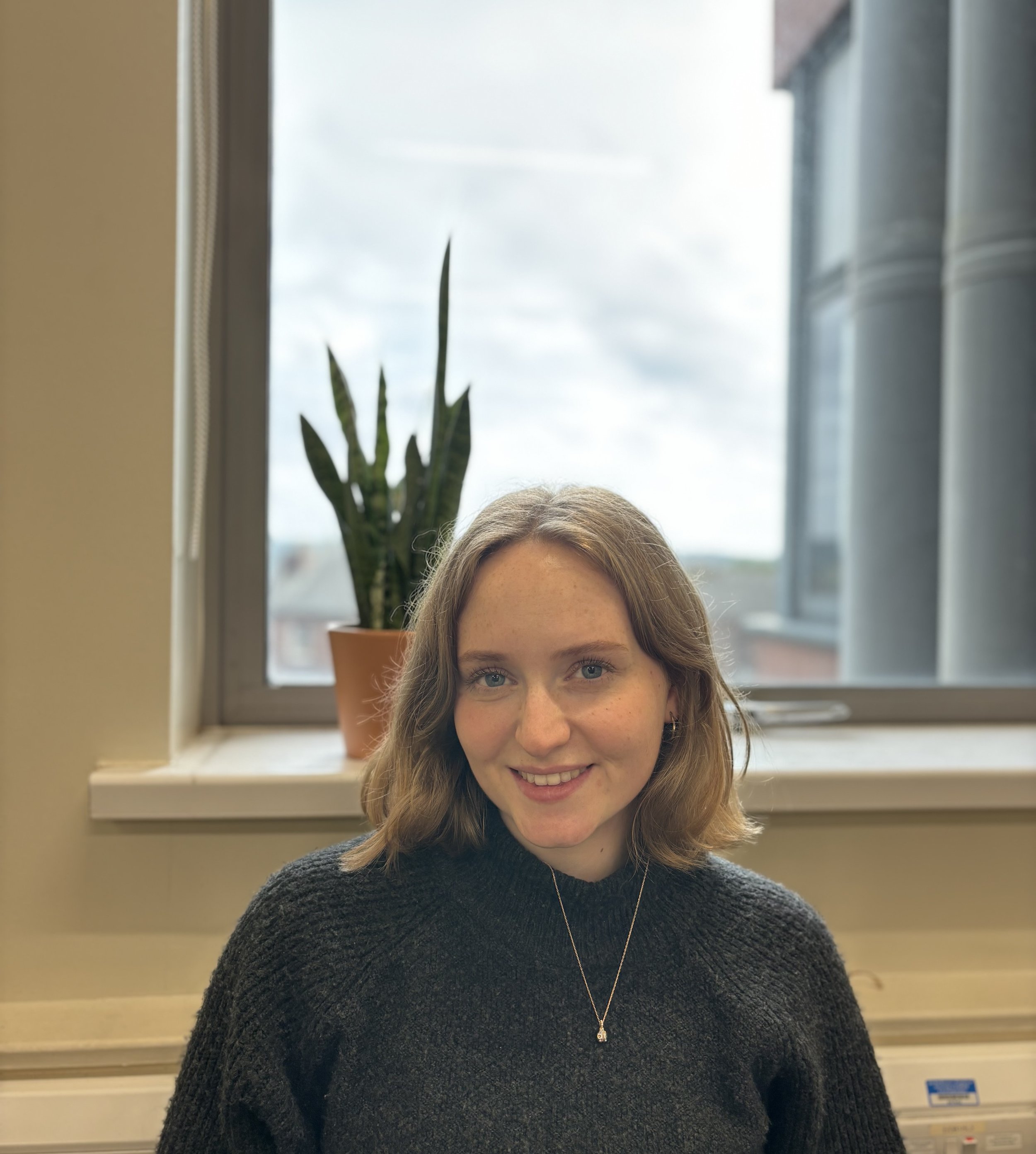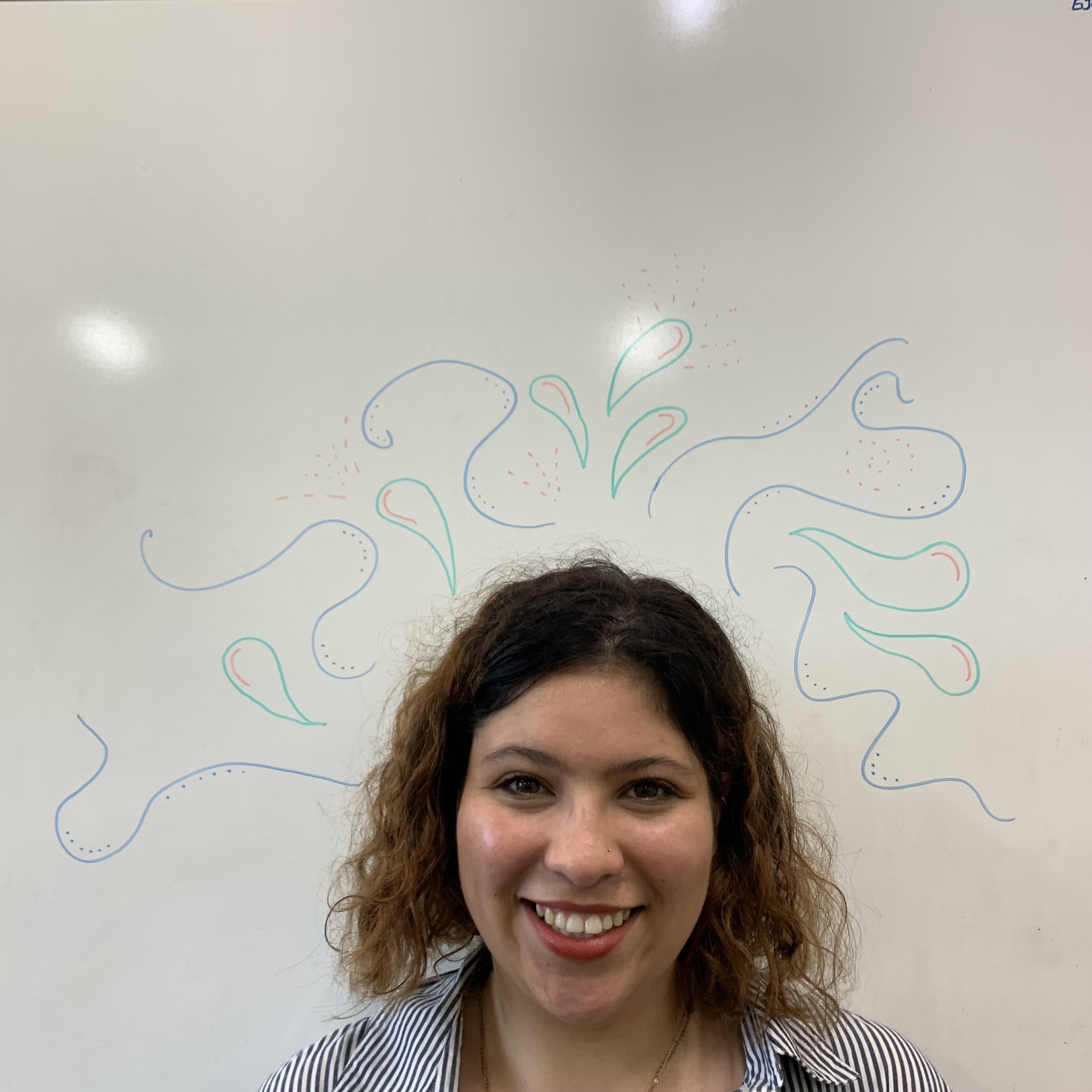Dr Alex Ramadan (she/her)
Group Leader
Dr Alex Ramadan is a Lecturer in the Department of Physics and Astronomy at the University of Sheffield. Alex received a MSc in Chemistry in 2011, a MRes in Plastic Electronics in 2012, and a PhD in Physics in 2016 all from Imperial College London. For her PhD research she worked under the supervision of Professor Sandrine Heutz (2016). In 2017 she received a UK-US Fulbright Scholarship to study highly crystalline organic solar cells at Princeton University. She worked as a postdoctoral researcher at the University of Oxford with Professor Henry Snaith FRS on perovskite semiconductors and their optoelectronic devices. In 2022 she was awarded the Rank Prize Research Visionary Award in optoelectronics. Her research looks at developing and understanding new semiconductor materials for next generation photovoltaic devices. She predominantly works with perovskite and organic semiconductors with a particular focus on understanding and optimising the surfaces and interfaces of these semiconductors within optoelectronic devices. Her work is interdisciplinary ranging from surface science, device fabrication and development, and advanced imaging characterisation.
Alongside her research Alex is passionate about improving research culture and making physics a more diverse, equitable, and inclusive research field. She is currently the co-lead for research culture in her department and is involved in a wide range of EDI activities.
Dr Grace Tabi, Postdoctoral Researcher
Grace Tabi is a Postdoctoral Research Associate (PDRA) in the New and Emerging Semiconductor (NES) research group at the Sheffield University. Grace studied for her PhD at the Australian National University, where she made significant contributions to the field of photovoltaic research. Her PhD research focused on halide perovskite solar cells, emphasising on the design and optimisation of the perovskite absorber, interface engineering, and modifying the transport materials to enhance the solar cell performance, stability and reliability. Currently, she’s diving into understanding the electronic structure in wide band gap metal halide perovskites.
Grace has been recognised for her outstanding work at several prestigious conferences. She received the Monica Oliphant Prize for Outstanding Poster Presentation by a Female Student at the Asia Pacific Solar Research Conference (APSRC) in 2022, held in Newcastle, Australia. In 2023, she was awarded the Best Poster Presentation Award at the 15th International Conference on Hybrid and Organic Photovoltaics (HOPV23) in London, United Kingdom. Most recently, she was honoured with the Science and Industry Endowment Fund (SIEF) award, which supported her participation and presentation at the 73rd Lindau Nobel Laureate Meeting in Physics in 2024, Lindau, Germany.
Grace is passionate about advocating for women in STEM and committed to fostering a research environment that is diverse, equitable and inclusive for everyone. Her commitment to these values is reflected in her work and her active engagement in initiatives that promote diversity in the scientific community.
Sophie Tucker, PhD Student (October 2023 - )
Sophie grew up in Cornwall and completed her MPhys at the University of Oxford in 2023. Her master’s project focused on exploring different fabrication routes for 2D perovskites, with an emphasis on photovoltaic applications. She moved to Sheffield in 2023 to begin her PhD with Dr Alex Ramadan, to continue working on perovskite photovoltaics. Sophie is passionate about making physics more accessible for those disproportionately underrepresented in the field, and in her free time enjoys painting, wild swimming, and writing bad movie reviews.
Rehmat Goodwin, PhD Student (October 2023 - )
I am a PhD student in the Department of Physics, University of Sheffield, taking part in research within the New and Emerging Semiconductors Group. I am interested in the behaviour of semiconductor materials, and how they can be applied across various technologies. I completed my BSc in Physics at the University of Surrey in 2022, and my final year project was on light-emitting devices and the different solutions for improving efficiency and colour rendering for commercial and domestic use. I have also recently completed my PG Diploma in Quantum Photonics and Nanomaterials in 2023, where I studied polariton non-linearity in 2D inorganic semiconductor photonic lattices, specifically 2D micropillar Lieb lattices. I am interested in making the jump to looking at new and emerging semiconductors, specific to applications in solar cells, with a wider goal of improving renewable energies. This includes ensuring that renewable energies are more sustainable in terms of materials and manufacturing, as well as making sure they are accessible to a wider range of the world population. As well as my research interests, I am passionate about outreach, with a goal of increasing equality, diversity and inclusion, in physics and the wider STEM community. I believe fostering passion for STEM subjects, especially those such as maths, physics and computer science is the key to building a more diverse, and therefore a stronger STEM community overall.
Chris Harris, PhD Student (October 2024 - )
Chris is a PhD student in the New and Emerging Semiconductor Group at the University of Sheffield. He graduated from the University of Leeds in 2015 after completing a masters project studying the Casimir force and applying variational calculus to model the behaviour of flexible conductors under its influence. He spent the next 7 years working in the photonics industry, designing, developing and testing high-performance DPSS lasers for Novanta, based in Manchester, but was drawn back to academia by a strong desire to contribute to furthering research in renewable energy technology. This led him to the NESG at Sheffield, where he is currently researching the application of electrical AFM to perovskite solar cells.
Outside of research Chris enjoys writing music as a guitarist and singer, as well as a good hike and the occasional game of chess.
Charlie Nicholls, PhD Student (Oct 2024 - )
Charlie comes from Kendal in the Lake District and finished his MChem at Oxford in 2024. In his Masters project, Charlie worked on perovskite nanoplatelets studying their growth chemistry and stability. Charlie’s PhD focuses on tracking the energy transfer in solar cell devices; in particular probing energy losses and examining the stability of mixed halide perovskite solar cells. In his spare time, Charlie enjoys a wide range of sports such as running, cycling, cricket and football.
Charlie is the recipient of the prestigious Overli Foundation Scholarship. Charlie is co-supervised by Dr Robbie Oliver (Sheffield Materials).





